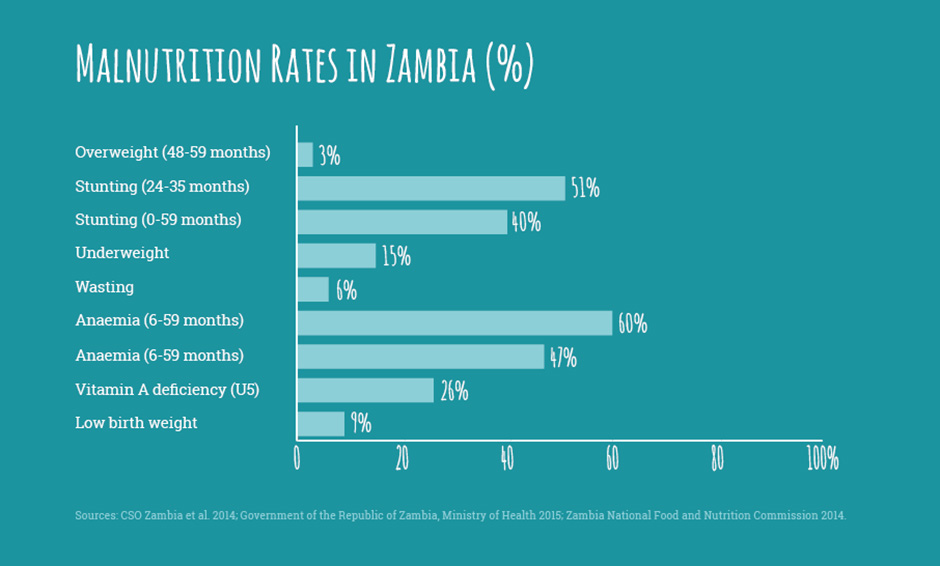MALNUTRITION
Malnutrition, in all its forms, includes undernutrition, inadequate vitamins or minerals, overweight, obesity, and resulting diet-related noncommunicable diseases (15). It can lead to reduced immunity, impairing an individual’s ability to fight and recover from illness. At the same time, repeated infections can lead to malnutrition.
Cause of malnutrition
There are many different causes of malnutrition in Zambia. Repeated infections (including acute respiratory infections, diarrhoea, and malaria) and suboptimal breastfeeding and other Infant and Young Child Feeding (IYCF) practices that result in inadequate dietary intake are immediate causes, but underlying causes include lack of safe water, hygiene, and sanitation; food insecurity; high fertility; gender inequality; low secondary education levels; and poverty (75).
Malnutrition conditions
According to the World Health Organization (15), there are three broad groups:
- Undernutrition, which includes wasting (low weight-for-height), stunting (low height-for-age) and (low weight-for-age); Undernutrition makes children in particular much more vulnerable to disease and death. In Zambia, figures showed that whilst the number of children under five years old who are stunted had dropped 5% since 2007, the prevalence was still 40.1% in 2013-14 (73). More recently the prevalence has dropped to 35% in 2018 (74).
- Micronutrient-related malnutrition, which includes micronutrient deficiencies (a lack of important vitamins and minerals) or micronutrient excess; Iodine, vitamin A, and iron are the most important in global public health terms. In Zambia, micronutrient deficiencies are also common among children (75).
- Overweight, obesity diet-related noncommunicable: this is caused by an imbalance between energy consumed (too much) and energy expended (too little). The World Health Organisation states is that globally, people are consuming foods and drinks that are more energy-dense (high in sugars and fats) and engaging in less physical activity.

Taking action
There are a number of interventions that the Zambian Government has put in place for to help tackle issues relating to child health and nutrition. Under the Micronutrient Control Programme there is a focus on Vitamin A supplementation including the fortification of sugar. Zambia Sugar is supporting this programme, with its White Spoon products being fortified with Vitamin A.


